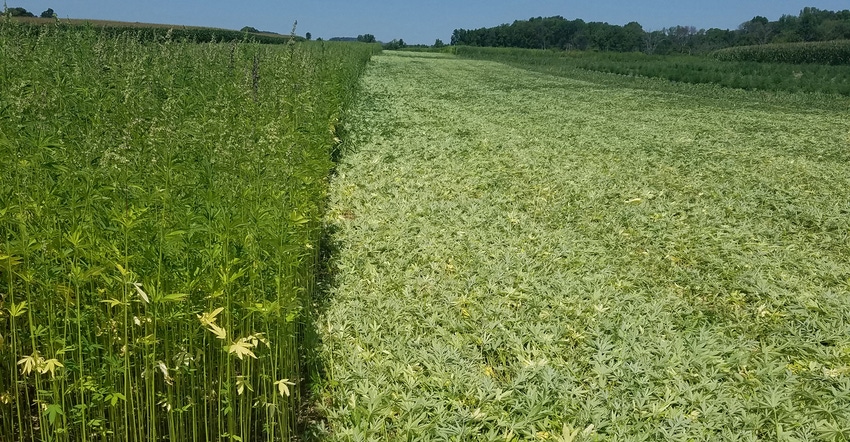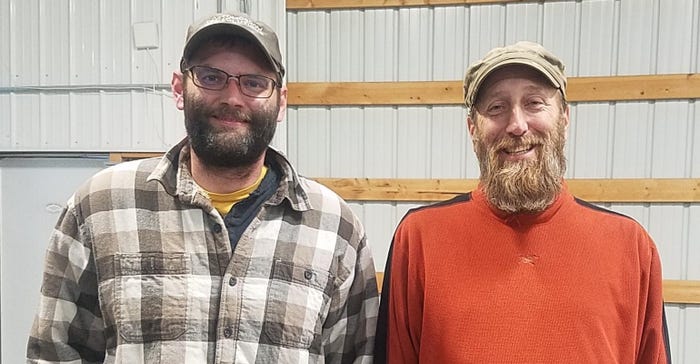
A new Heartland Hemp Cooperative led by Indiana growers aims to help farmers earn an income from baled hemp fiber. The co-op is primarily organizing farmers located in a 150-mile-diameter region around Louisville, Ky., extending into Indiana and Ohio.
Among the six founding board members, Indiana hemp farmer Michael Morrow, Shelby County, says more than 700 bales of hemp he grew in 2019 never went to a buyer, in part because processor bankruptcies led to broken contracts in the young industry.
Louisville-based Sunstrand went bankrupt in January. A Montana processor bought its equipment and is moving it to Montana, out of reach for farmers in Kentucky, Indiana and Ohio.
“Our goal is to address that with a farmer-owned co-op,” Morrow says.
Fellow board member Marty Mahan, Glenwood, Ind., adds, “If we can produce a product, we can sell it ourselves and keep more of the margin here with producers.”

Board members and other farmers can join by pitching in $500 per share for the $500,000 equipment the co-op still needs to purchase — likely a $500,000 unit from Formation Ag. Farmers receive a $500 preferred share in exchange.
The co-op needs to sell 1,000 shares to raise the money needed to buy the equipment that accomplishes the first stage of processing: separating the woody interiors, or hurd, from fiber. Hurd can be sold directly to customers as animal bedding. Mahan calculates the co-op will break even by selling hemp hurd as a low-margin product but can achieve “icing on top of the cake” profits from selling fiber.
“We’re the first-tier processor. With the fiber after we separate it from the hurd, we want to sell it to a second-tier processor,” Mahan says.
Processing equipment like HempTrain costs twice as much and can size the fiber for fiberglass alternative production and other higher-margin uses. HempTrain also separates hurd from fiber, or decorticates, at 5 tons per hour, compared to the Formation Ag unit’s speed of about 1 ton per hour.
“We looked at HempTrain, but for our purposes, 1 ton an hour works fine,” Mahan says, noting the co-op is planning for 20 to 40 new members in the runup to the 2021 hemp fiber harvest.
One acre typically produces 6,000 pounds of hemp fiber, and Formation Ag’s unit can decorticate 2,000 to 2,500 pounds an hour. The co-op plans to start processing hemp in September with a decorticator centrally located in the three-state region being targeted for new membership.
While the co-op will issue preferred stock to nonfarming investors starting in 2021, Morrow concludes that the goal is for it to be 100% farmer-owned eventually.
About the Author(s)
You May Also Like




